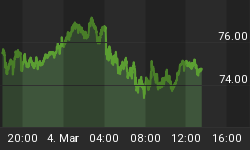Clearly, individual investors should have been asking whether their money was safe time and time again over the past year, rather than listening to the pundits on CNN. Many investors thought they had invested their money wisely and relied solely on the advice of their brokers. But now they're emotionally distraught because they realize they were misled big time. But how were they misled?
First, many investors over the past four years invested in some real funky hedge funds that were heavily into mortgage and asset-backed securities, CDO's, CLO's, and long-term illiquid assets. They were led to believe they would be able to get their money out in as little as three to six months if they needed to. But instead of ready-access to cash, the Bear Stearns funds (as one example) delivered losses of almost 100 percent. Presently, there are a number of hedge funds in total "lock down" where the money checked in, but it won't be checking out for a very long time. Like a roach motel! (At least the asset managers will continue getting their fees!)
Over the past five years, Wall Street introduced Structured Investment Vehicles (SIV's) to the world. These SIV's were a way for major banks to fund hundreds of billions in asset-backed and mortgage-backed securities with short-term commercial paper off the banks' balance sheet. In the past year, SIVs basically collapsed. Some investors in SIV's were lucky because they cashed out when banks brought the assets back on-balance sheet. Others were lucky, but it was bad luck.
Worse yet, over the past several years, Wall Street brought Auction Rate Securities ("ARS") to Main Street. They were sold as a higher-yield substitute for safe money market funds. Small investors were stuffed with over $330 billion of ARSs invested in longer term tax-exempt municipal bonds, preferred stock, and student loans. They were told they would have ready-access to their money without loss, for a small pick-up in yield. But when the auctions failed, many unsuspecting people (who thought they had a simple money-market fund) found out their money was locked away and couldn't be touched. Who knows how long they'll have to wait before they can get their cash. Main Street has met Mean Street.
The moral of the story is you just can't always fund long-term assets safely with short-term hot money. I estimate that investors in the Hedge Funds, SIVs and ARSs, mentioned above, have already been denied access to close to $1 trillion dollars that they thought was readily available cash they could withdraw on short-notice. Total losses have yet to be determined, but being denied access to your cash can feel devastating even if there is a chance you can make some of it back in the future. Holding cash is like having an umbrella for a rainy day. For those misled by a trusted broker, the umbrella is now broken just in time for monsoon season.
Unfortunately, what's done is done and you can't look back and undo what has happened, but the government taxpayer bailout of Fannie Mae and Freddie Mac, and the government takeover of IndyMac Bank, should be a wake-up call. The worst problems in the financial markets aren't over; they're just getting started. These failures are huge events, and the smoke signals they created suggest there are many more financial fires around. Many banks will fail! Some large and medium-sized broker/dealers and finance companies are likely to be merged out, or file for bankruptcy.
So, what can you do to protect your money? The FDIC offers iron-clad insurance up to $100,000 per account. If you have a lot of money, spread it around between different banks. For individuals and companies with a lot more than a few hundred thousand dollars, a large portion of the cash should be held in a money-market fund that only invests in short-term US Treasuries. If you are a small investor and like to keep money safe for a little longer - and don't particularly like the rates offered on bank CDs - think about buying I-Bonds from the US Treasury. The Treasury is now limiting the purchase of I-Bonds to only $10,000 a year per person. It used to be that the Treasury allowed you to purchase $30,000 per year per person, but they now want to try and keep money in the banks. I-Bonds pay the CPI which, of course, underestimates the true rate of inflation and guarantees you will be robbed by the government, but you'll receive a better rate of return than on a bank CD for the time being. (The current rate for an I-Bond is 4.84% through October 31 (Go to www.savingsbonds.gov).
Most of us probably have our money safely tucked away, but don't get caught napping in the middle of the afternoon. The failures tend to come in slow motion, and there are signs you should be watching for, such as: 1) if a bank shows up on a list of troubled banks, move fast (it only took 10 days for IndyMac Bank to fail); 2) if a bank, brokerage firm or finance company has a stock price of $10 a share or less, try and cut your exposure; 3) if the stock price is $5 or less, proceed as if the company's days are numbered and get your money out; 4) if a bank or brokerage firm has publicly denied rumors more than three times, consider them desperate and run; and 5) if you ever hear a government official come out and say that an institution is fine, you know it's time to get your money out because history shows they're likely lying. Look what happened with Fannie and Freddie. The government said everything was fine right up to the day the US Treasury dropped the biggest government bailout of all time on the American taxpayer. The bill for Fannie, Freddie and the bank failures could cost the taxpayer over $400 billion. (That's your money, of course.)















